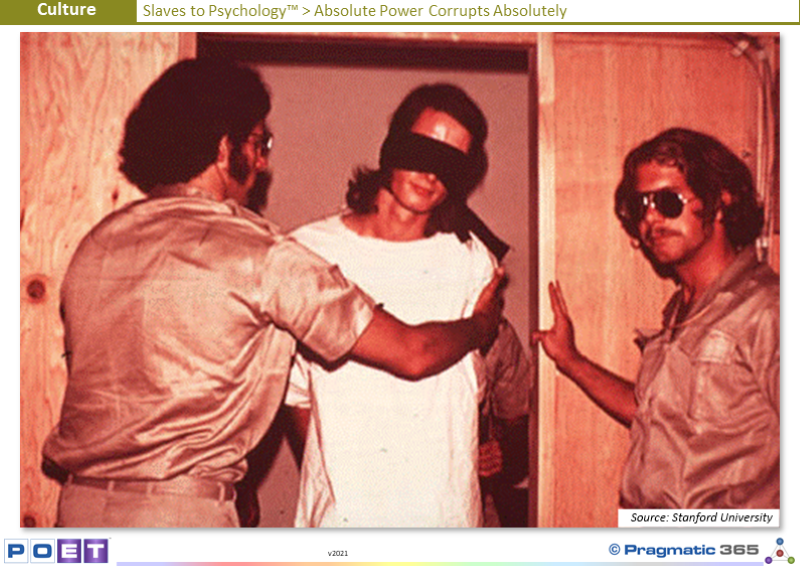
The Stanford Prison Experiment
This infamous experiment studied the psychological effects a
prison setting could have on behaviour. In 1971, a mock prison was constructed
in the basement of the psychology building of Stanford University and 24 male
students were randomly selected to play the role of either a prisoner or prison
guard for two weeks. The students adapted to their roles a little too well,
becoming aggressive to the point of inflicting psychological torture. Even psychology
professor Philip Zimbardo, who acted as superintendent of the experiment,
proved susceptible to its effects by allowing the abuse to continue. The study
was called off after only six days due to its intensity, but it proved that
situations could provoke certain behaviours, in spite of an individualís
natural tendencies.
...to read more, please Login or Register